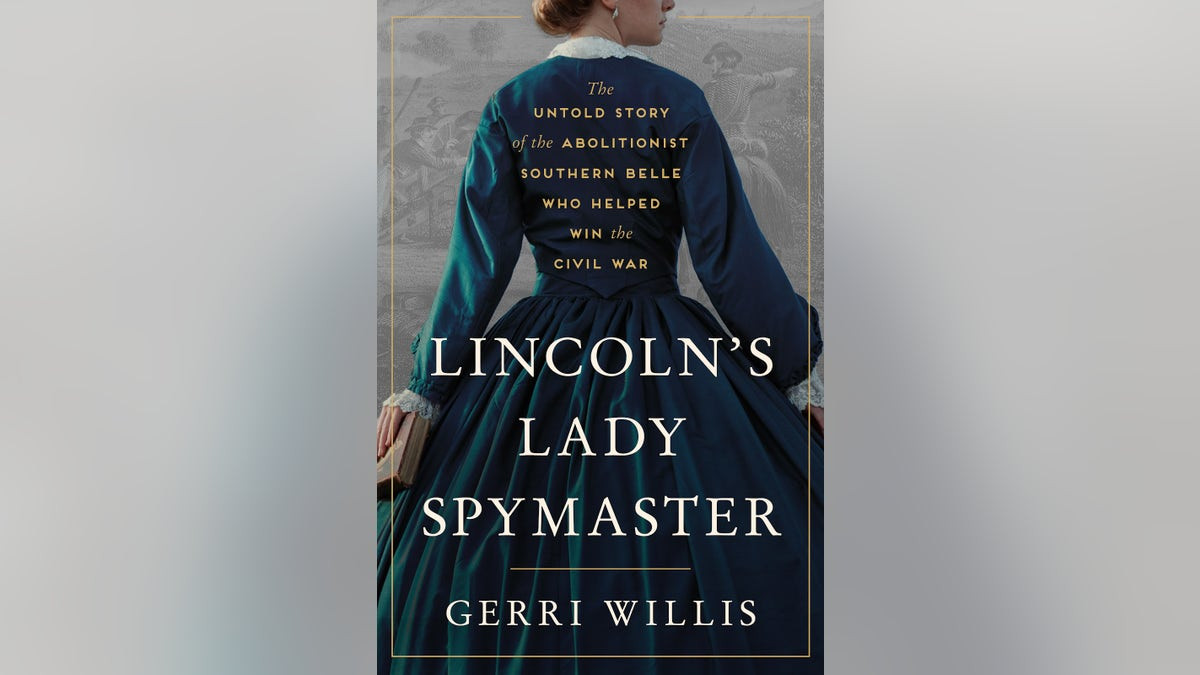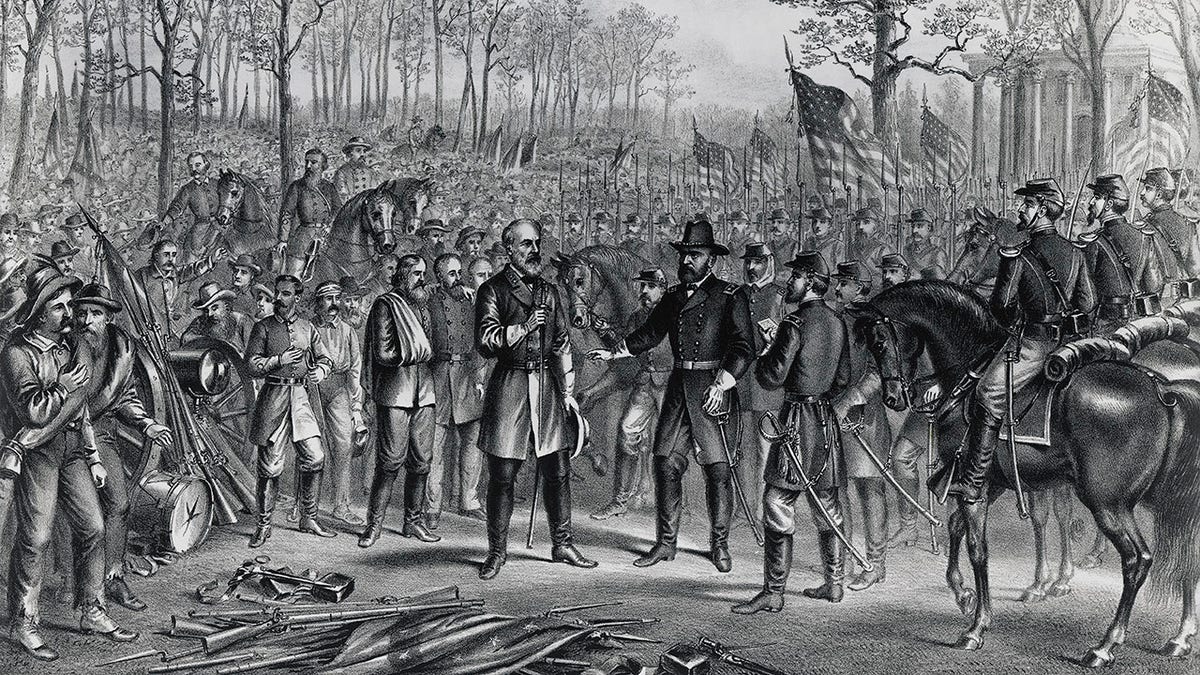
NEWYou can now listen to Fox News articles!
In an age of instant accolades and viral valor, heroes are everywhere. Celebrities tearfully describing a difficult breakup on daytime TV are deemed heroic. You knew the word had lost all meaning when alleged murderer Luigi Mangione became a “hero” on social media for taking the life of Brian Thompson, the CEO of United Healthcare. How is it that we have so lost the thread?
Just who qualifies as a hero was on my mind as I began researching my book “Lincoln’s Lady Spymaster” several years ago. We were in the depths of the COVID-19 pandemic, our lives upended. I eagerly ditched the commute and worked from home but as the months in isolation slid by, I began to worry. How long could this go on for?
The situation was more dire for many of the young women producers I had worked with in our offices in Manhattan. They were lonely and anxious, living alone in tiny New York apartments or at home in their childhood bedrooms. One young woman I knew started having panic attacks.
KEVIN COSTNER REVEALS ‘TRAGIC’ TRUTHS UNCOVERED IN NEW DOCU-SERIES ‘THE WEST’
I wanted to help these co-workers cope – but what could I do? Look, I reasoned with myself, women in this country have faced far more difficult challenges than a temporary lockdown (it had to be temporary, after all!). American women have survived wars, myriad financial panics and so many challenges.

The cover of “Lincoln’s Lady Spymaster: The Untold Story of the Abolitionist Southern Belle Who Helped Win the Civil War,” written by Gerri Willis.
I decided I would find a subject, a real woman from our nation’s past, someone who lived through challenging times and not only survived but left her mark on the world. I wanted what we all want in a hero – someone acting courageously, not for headlines or money or even public gratitude, but because they felt called to right a wrong regardless of consequences.
I first learned of Elizabeth Van Lew the same way we find out about most new things, from a web search. An academic historian had written about her, and she was sometimes included in lists of the moonlight-and-magnolia-style of female civil war spies, the kind historians don’t take too seriously. I was hooked when I learned she was a spymaster, and strikingly, a Southern belle who chose to stay faithful to the Union and who ran a spy ring for President Abraham Lincoln’s top general, Ulysses S. Grant, while living in Richmond, the capital of the Confederacy.
CIVIL WAR TAUGHT HOW TO INFLUENCE NEWS MEDIA. IT NEARLY COST LINCOLN RE-ELECTION
When I began, I thought of myself as knowledgeable about the era. I knew the bright lights, Lincoln, Grant, Confederate Gen. Robert E. Lee. But this woman had left little trace. She was generally missing from much of the Civil War literature. James McPherson mentioned her not at all in his sweeping nearly 900-page history of the conflict, “Battle Cry of Freedom.”
I learned she had left a diary, where she spilled her fears and hopes during the war. I imagined myself writing a book about a woman whom society underestimates and throws obstacles in her path, a tale of uplift! But my research exposed a secret history – a story Van Lew herself tried to cancel. Unlike other spies, she refused to write a book of her Civil War exploits after the war and conducted few newspaper interviews.
I began to discover the real Elizabeth and she surprised me. I found she was complicated and made difficult, morally questionable decisions. She lied to friends and neighbors, brazenly stole secrets from some and bribed others. Although she was a supporter of both the Union and abolitionism, her family owned slaves.
CLICK HERE FOR MORE FOX NEWS OPINION
Late in the war, as she became frustrated at the pace of Union advances, she tried to convince Union war planners to abduct Confederate leadership. She was the kind of woman who could as easily inspect the body of a dead soldier at dawn under threat of discovery by the enemy as preside over a tea party, swapping gossip and passing canapes. And, yet she provided invaluable information to the Union and ran what historians have described as the most-effective spy ring on either side of the conflict.
As I began writing the book, I recalled the fact that co-workers and friends had labeled me a hero when I went public with my diagnosis of Stage 3 breast cancer. While it felt nice to be called a hero, I never really accepted the idea. My fight with cancer was really an act of self-interest.

Elizabeth Van Lew was a Southern belle who ran a spy ring for Union Gen. Ulysses S. Grant. FILE: General Robert Lee surrenders to Grant at Appomattox, April 9, 1865. (Getty Images)
ABRAHAM LINCOLN’S POSSESSIONS SELL FOR MILLIONS AS BLOODSTAINED GLOVES TOP AUCTION
What I saw in Elizabeth Van Lew was someone who acted with no self-regard, inviting risk after risk. Hers was not a Daniel Penny kind of courage, the kind of instant reaction to fight a physical threat on behalf of others that we all admire, but a more sustained battle of conscience and will. In this world, we need both kinds of heroes and could welcome more.
CLICK HERE TO GET THE FOX NEWS APP
This year marks the 160th anniversary of the Civil War’s end and Lincoln’s assassination. As we remember that tragic war, let’s not forget the heroes that emerged, especially those that have remained in the shadows. Elizabeth Van Lew was one of tens of thousands of women who emerged to fight the war in their own way. Hundreds fought on the battlefield following husbands, brothers and fathers into service; women nursed the injured, others ran their family farms and businesses on their own for the first time.
Van Lew’s story is a testament to the essence of true heroism: unwavering moral conviction, selfless action and the courage to stand against prevailing tides. In an era when the term “hero” is often diluted, her legacy reminds us that real heroes are those who, without fanfare, commit themselves to justice and humanity.